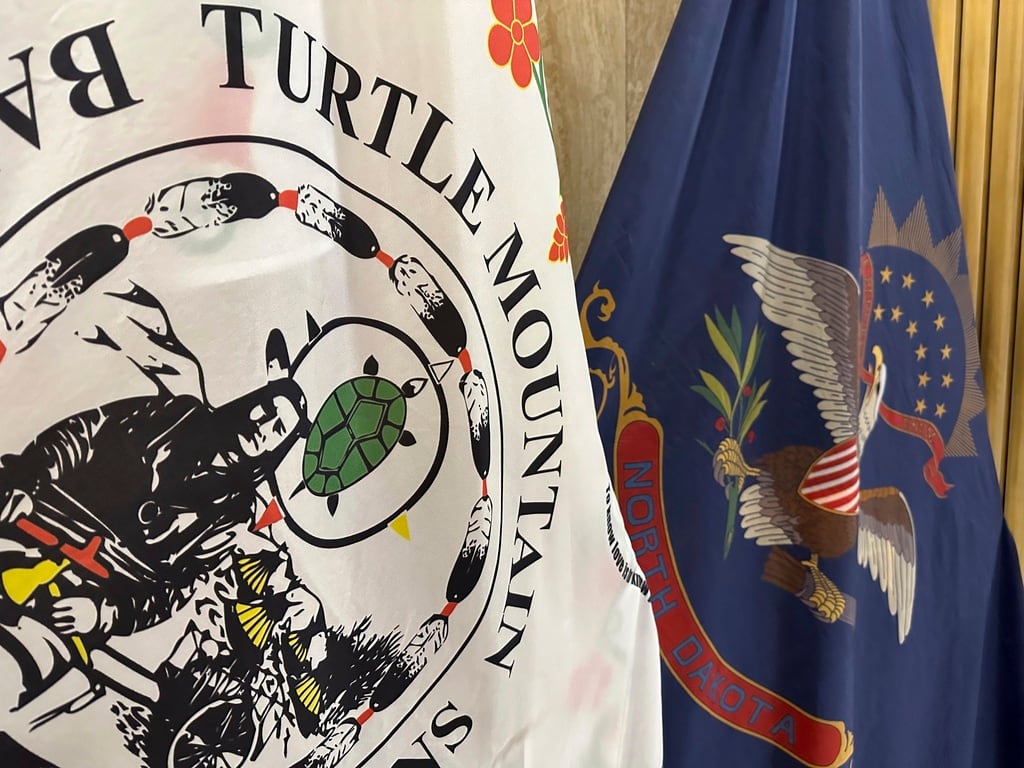(AP) BISMARCK, N.D. The U.S. Supreme Court may hear the issue after a federal appeals court refused to reexamine its ruling in a redistricting case that ruled against two Native American tribes who contested North Dakota’s legislative redistricting map.
Due to a 2-1 decision rendered in May by a three-judge panel of the 8th U.S. Circuit Court of Appeals, which eliminated a route for individuals in seven states to file a lawsuit under a significant clause of the historic federal civil rights law, the case has garnered national attention. The tribes claimed that by weakening their voting power and capacity to choose their own representatives, the 2021 map violated the statute.
According to the panel, such lawsuits can only be filed by the US Department of Justice. This came after an Arkansas court in 2023 ruled that private parties could not file lawsuits under Section 2 of the law.
The Supreme Court may be asked to settle this split since those decisions run counter to decades’ worth of decisions by appellate courts in other federal circuits that have upheld private parties’ ability to sue under Section 2. Nonetheless, a number of conservative justices on the high court have recently expressed interest in making it more difficult, if not impossible, to file redistricting claims under the Voting Rights Act.
The Spirit Lake Tribe and Turtle Mountain Band of Chippewa Indians requested a rehearing before all 11 judges from the appeals court following the May ruling. A rehearing was also requested by the attorneys general of 19 states, a number of former attorneys from the U.S. Justice Department, a number of voting rights historians, and others.
The Native American Rights Fund and other organizations that represent the tribes submitted the motion, but the full court rejected it in a decision on Thursday. Circuit Chief Judge Steven Colloton, who had dissented in the earlier decision, was one of three judges who stated that they would have given it.
According to the May majority judgment, the Voting Rights Act would have needed to clearly grant private individuals or organizations the ability to suit in order for the tribes to do so.
“The refusal to reconsider wrongly restricts voters disenfranchised by a gerrymandered redistricting map from challenging that map,” said Lenny Powell, a fund staff attorney.
The tribes are now weighing their legal options, Powell said on Monday.
The Campaign Legal Center, another organization that represents the tribes, said the decision goes against decades of Supreme Court precedent upholding voters’ authority to enforce the law in court as well as Congress’s intent when it passed the legislation.
A request for comment Monday was not immediately answered by North Dakota Secretary of State Michael Howe’s office.
According to the groups, they will keep fighting for equitable maps. Only the states in the 8th Circuit—Arizona, Iowa, Minnesota, Missouri, Nebraska, North Dakota, and South Dakota—are covered by the North Dakota and Arkansas rulings. Following the Arkansas ruling, Minnesota and other states have taken steps to strengthen voting rights through state-level safeguards in order to close the widening legal loopholes in federal law.
In 2022, the tribes from North Dakota filed their complaint.After Republican Secretary of State Michael Howe challenged a lower court’s November 2023 ruling in favor of the tribes, the three-judge panel heard appellate arguments last October.
In his decision, U.S. District Judge Peter Welte mandated the establishment of a new district that included the reservations of both tribes, which are located around 60 miles (97 kilometers) apart. Voters in 2024 voted Democrats from both tribes to two House seats and the district’s Senate seat.
The legislature of North Dakota is supermajority Republican.





More Stories
Appeals court rules against North Dakota tribes in voting rights case that could go to Supreme Court
Appeals court rules against North Dakota tribes in voting rights case that could go to Supreme Court
Appeals court rules against North Dakota tribes in voting rights case that could go to Supreme Court